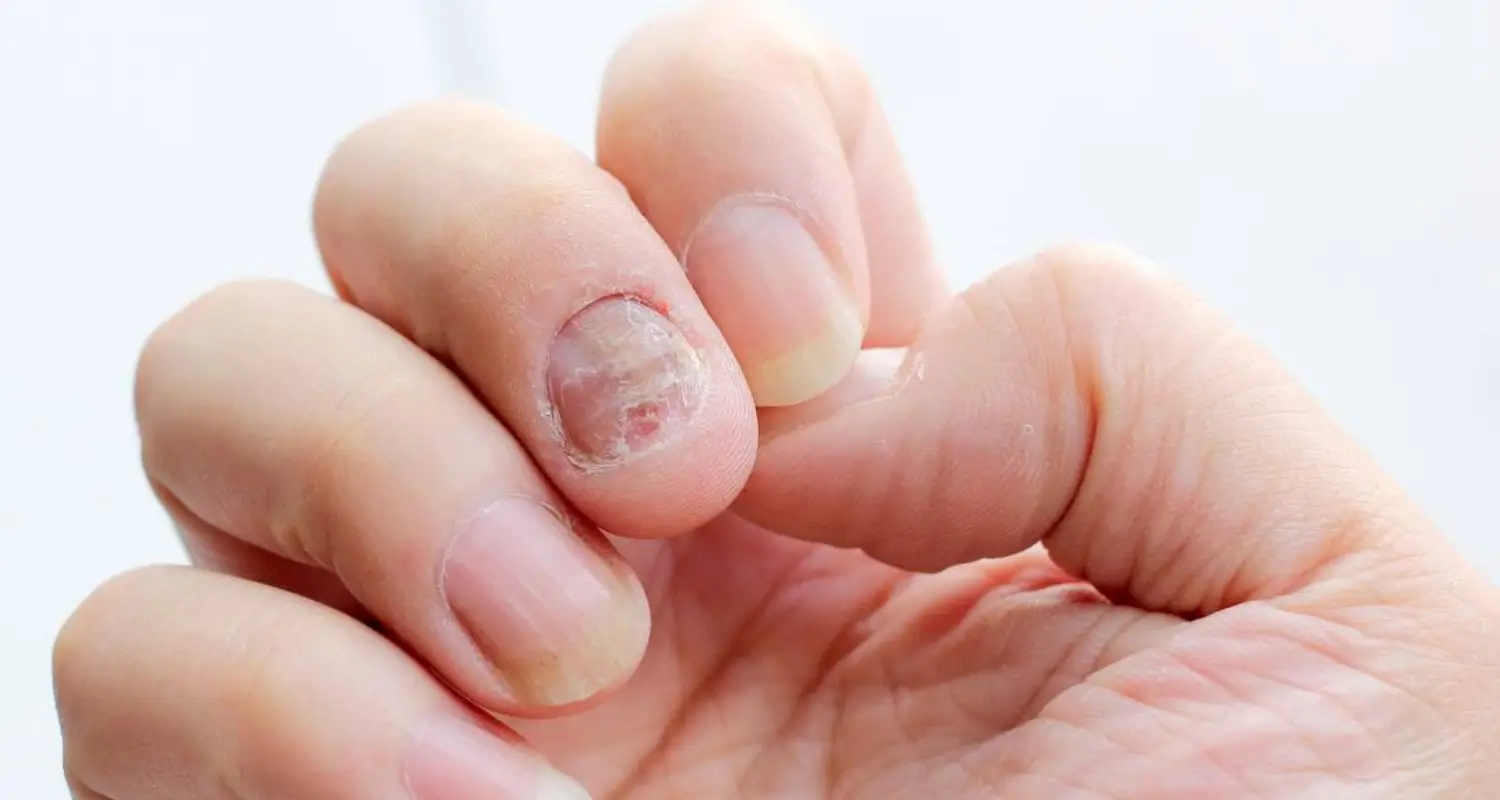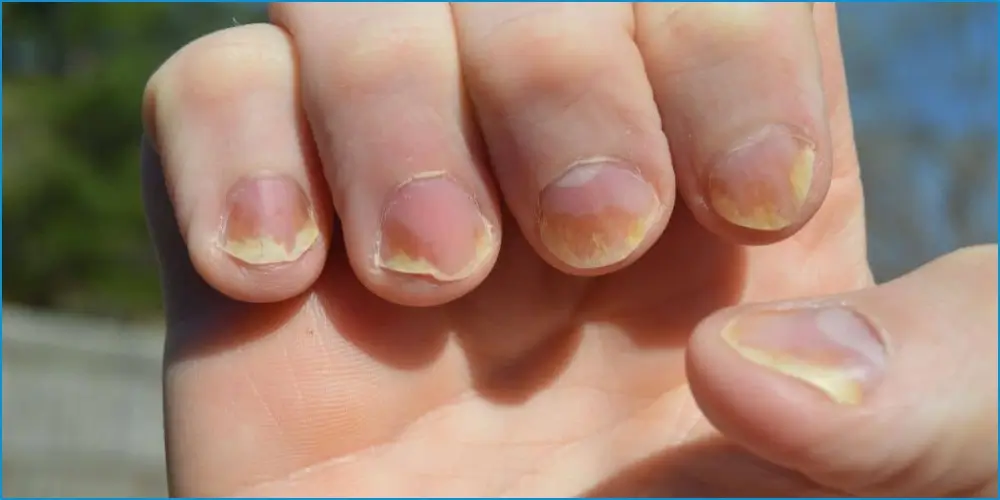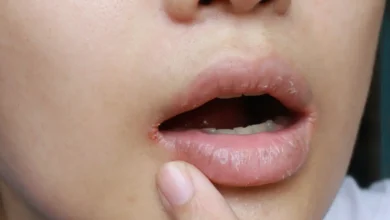5 Effective Natural Remedies for Psoriatic Arthritis Nails

Psoriatic arthritis (PsA) is a chronic autoimmune condition that causes inflammation in the joints and can lead to nail changes like nail fungus, nail ridges, and pitting 1. For individuals seeking natural alternatives to manage their PsA nail symptoms, various home remedies may offer relief.
This comprehensive guide explores five effective natural remedies that could help alleviate psoriatic arthritis in nails, including coconut oil, aloe vera moisturizers, the Psolace Kit, tea tree oil for fungal infections, and tips for maintaining overall nail health 1. While consulting a doctor is advisable before trying any new treatments, these natural options may provide a complementary approach to managing PsA nail manifestations.
Identifying Nail Psoriasis Symptoms
Identifying nail psoriasis symptoms is crucial for proper treatment and management. About 80% of people with psoriatic arthritis (PsA) experience nail lesions, including pitting, separation, discoloration, ridges, and infections 2 3. PsA often affects the fingernails more than the toenails, causing issues like 4:
- Pitting: Grooves or holes on the nail surface, shallow or deep 5.
- Discoloration: Nails may turn green, yellow, brown, or have red/white spots 5.
- Thickening: Nails can become thick, brittle, and prone to breakage 5.
- Debris buildup: White, chalky material can build up under the nail, causing it to separate from the nail bed (onycholysis) 5.
Other common symptoms include :
| Symptom | Description |
|---|---|
| Nail Bed Discoloration | Yellow, red, pink, or brown (salmon patches/oil drop spots) |
| Pitting | Small to large dents or depressions on the nail surface |
| Beau’s Lines | Grooves running horizontally across the nails |
| Nail Thinning | Thinning of the nails, leading to crumbling |
| Onycholysis | Separation of the nail from the nail bed, increases risk of fungal infection |
| Subungual Hyperkeratosis | The buildup of chalky white material under the nail, causing lifting |
Nail psoriasis results from psoriatic inflammation involving the nail bed or nail matrix. Involvement of the nail matrix can cause nail pitting, red spots in the lunula, leukonychia, and crumbling of the nail plate, while involvement of the nail bed can cause onycholysis, splinter hemorrhages, subungual hyperkeratosis, and oil drop discoloration.
Coconut Oil and Aloe Vera Moisturizers
Moisturizing the nails and cuticles is an essential step in managing psoriatic arthritis nail symptoms. Two natural remedies that can help hydrate and nourish the nails are coconut oil and aloe vera 5.
- Coconut Oil: Rich in fatty acids and antioxidants, coconut oil can help strengthen and condition the nails. It has antimicrobial properties that may also help prevent fungal infections 5. To use, simply massage a small amount of coconut oil into the nails and cuticles, leaving it on overnight for best results.
- Aloe Vera: Known for its soothing and healing properties, aloe vera can help moisturize and nourish the nails. Its anti-inflammatory properties may also help reduce swelling and redness associated with psoriatic arthritis 5. Apply a thin layer of pure aloe vera gel to the nails and cuticles, allowing it to absorb fully.
Both coconut oil and aloe vera are gentle, natural options that can be easily incorporated into a daily nail care routine. They can help keep the nails and surrounding skin hydrated, which is crucial for preventing further damage and promoting healthy nail growth 5.
Psolace Kit: A Comprehensive Natural Treatment
The Psolace Kit is a comprehensive 30-day natural treatment system designed to help alleviate psoriasis symptoms, including nail psoriasis 5. It aims to boost the immune system, promote healthy skin function, and provide long-lasting nourishment for those suffering from psoriatic arthritis 5.
The kit includes:
- Immune System Boosters: Natural supplements formulated to strengthen the immune system and reduce inflammation associated with psoriasis 5.
- Skin Nourishing Creams: Topical creams and ointments containing natural ingredients like aloe vera, coconut oil, and shea butter to hydrate and nourish the skin 5.
- Detoxifying Agents: Herbal teas and supplements that help support the body’s natural detoxification processes, which can be beneficial for psoriasis management 5.
- Nail Care Products: Specialized nail treatments and oils designed to promote healthy nail growth and prevent further damage from nail psoriasis 5.
Nail psoriasis can significantly impact daily life, causing discomfort, self-consciousness, and potential complications if left untreated 5. The Psolace Kit offers a comprehensive, natural approach to managing nail psoriasis and promoting overall skin health 5.
Tea Tree Oil for Fungal Infections
About a third of people with nail psoriasis symptoms also have a fungal infection, which can be treated with antifungal medications 3. One natural option that may help treat and prevent fungal infections in the nails is tea tree oil 5.
To use tea tree oil for nail fungus, follow these steps:
- Dilute the Oil: Tea tree oil is potent and should be diluted with a carrier oil like coconut or olive oil. Mix 2-3 drops of tea tree oil with 1 tablespoon of carrier oil 5.
- Soak the Nails: Fill a small bowl or container with warm water and add the diluted tea tree oil solution. Soak the affected nails for 15-20 minutes 5.
- Dry and Massage: After soaking, pat the nails dry and massage any remaining oil solution into the nails and cuticles 5.
- Repeat Regularly: Repeat this process once or twice daily until the fungal infection clears 5.
Tea tree oil has antifungal, antibacterial, and anti-inflammatory properties that can help combat nail fungus and promote healthy nail growth 5. However, it’s important to note that tea tree oil should not be used undiluted, as it can cause skin irritation 5.
In addition to tea tree oil, other natural remedies like apple cider vinegar, Oregon grape, oatmeal, and aloe vera may also help soothe skin symptoms associated with psoriatic arthritis 1. However, it’s always best to consult a healthcare professional before trying any new treatment, especially if you have a pre-existing condition 1.
Maintaining Nail Health

Proper nail care is crucial for managing psoriatic arthritis (PsA) nail symptoms and preventing further damage or infection. Here are some recommended tips:
- Trim Nails Short: Keep nails trimmed short to minimize trauma and prevent snagging 2 4. Use a nail file instead of clippers to avoid cracking or splitting the nails 4.
- Wear Protective Gloves: Wear gloves when doing manual work or activities that could cause nail trauma 2 4. This helps protect the nails and prevents further irritation or injury.
- Moisturize Hands and Feet: Regularly moisturize your hands and feet to keep the skin and nails hydrated 2 4. Use gentle, fragrance-free moisturizers or petroleum jelly to nourish the nails and cuticles 4.
- Avoid Harsh Chemicals and Artificial Nails: Harsh chemicals, rough files, and artificial nails like acrylics or gels can worsen nail symptoms and lead to flares. Opt for gentle, natural nail products instead.
- Don’t Pick or Bite Nails: Avoid picking, biting, or pushing back cuticles, as this can damage the nail bed and increase the risk of infection 2 4.
- Seek Professional Treatment: If you experience chronic nail discoloration, thickening, or separation, consult your doctor, as these could indicate a fungal infection requiring prescription medication. Your doctor may recommend treatments like topical medications, corticosteroid injections, laser therapy, or systemic medications for severe cases 2 3 4.
| Nail Care Tip | Purpose |
|---|---|
| Trim nails short | Minimize trauma and prevent snagging 2 4 |
| Wear protective gloves | Protect nails from injury and irritation 2 4 |
| Moisturize hands and feet | Keep skin and nails hydrated 2 4 |
| Avoid harsh chemicals and artificial nails | Prevent worsening of nail symptoms |
| Don’t pick or bite nails | Prevent damage and infection 2 4 |
| Seek professional treatment | Address severe or persistent nail issues |
Proper nail care, combined with prescribed treatments from your doctor, can help manage PsA nail symptoms and prevent further complications 2 3 4.
Conclusion
Psoriatic arthritis can have a significant impact on nail health, leading to various nail manifestations such as pitting, discoloration, and fungal infections. While medical treatments are crucial for managing this condition, incorporating natural remedies into one’s routine can provide additional relief and promote overall nail wellness. Coconut oil, aloe vera moisturizers, the Psolace Kit, and tea tree oil offer gentle, natural alternatives that can help hydrate, nourish, and protect the nails, potentially reducing the severity of psoriatic nail symptoms.
However, it’s essential to remember that natural remedies should be used as a complementary approach and not as a replacement for professional medical advice and treatment. Maintaining proper nail care habits, such as keeping nails trimmed, avoiding trauma, and seeking professional treatment for severe or persistent issues, is also crucial for managing psoriatic arthritis nail manifestations effectively. By combining natural remedies with a proactive nail care routine and medical guidance, individuals with psoriatic arthritis can take a holistic approach to promoting nail health and overall well-being.
FAQs
What are some natural ways to manage psoriatic arthritis?
Natural approaches that may aid in managing psoriatic arthritis (PsA) include the use of turmeric due to its curcumin content, which has anti-inflammatory effects. Capsaicin from chili peppers, Epsom salts, fish oil, and ginger are also beneficial. Regular exercise, avoiding or quitting smoking, and massage therapy can further assist in managing the condition.
Which vitamin is recommended for individuals with psoriatic arthritis?
Vitamin D is particularly important for people with psoriatic arthritis as they are prone to deficiencies. It plays a crucial role in reducing inflammation, promoting healthy bones, and may offer protection against heart disease and diabetes.
Is there a way to completely heal psoriatic arthritis?
Currently, there is no cure for psoriatic arthritis. Treatments primarily aim to control inflammation to alleviate joint pain, prevent disability, and manage skin symptoms. Disease-modifying antirheumatic drugs (DMARDs) are among the most common treatments prescribed.
Can turmeric be beneficial for those with psoriatic arthritis?
Yes, turmeric, specifically the compound Curcuma longa, has been found to help reduce and control swelling and stiffness in the joints affected by psoriatic arthritis. It is often considered alongside other natural remedies such as acupuncture, sarsaparilla (Smilax officinalis), and vitamin D for their potential benefits.



One Comment